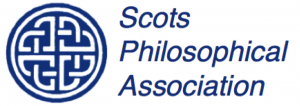
- This event has passed.
Epistemic Incoherence
6th December 2015 - 7th December 2015
Event Navigation
What is Epistemic Incoherence? In one form, it is roughly the idea that the concept of knowledge/justification is incoherent. In another form, it is the idea that the rules governing ‘knows’/’is justified in believing’ issue in contradictory instructions if sufficiently pressed. In another guise, it is the (related) idea that the demands of rationality are incoherent in that they place inconsistent requirements on action. These ideas have been kicking around for a while — see Vogel (1990), Schiffer (1996), Weiner (2009), and Spicer (2008). However, there has been little systematic scrutiny of the nature and scope of Epistemic Incoherence. The broad idea belongs to an older tradition that holds that many or even most philosophically interesting concepts are incoherent—an idea found in Dummett (1975) and Wittgenstein; see also Frege and Tarski (1944). This workshop aims to explore just what Epistemic Incoherence amounts to and whether it is a useful notion in coming to understand the many puzzles and paradoxes concerning knowledge.
Confirmed speakers are: Herman Cappelen (Oslo) Matti Eklund (Uppsala) Claire Field (St Andrews) Patrick Greenough (St Andrews) Nick Hughes (St Andrews) Gillian Russell (UNC Chapel Hill) Kevin Scharp (Ohio State) Elia Zardini (Lisbon)
Provisional Schedule
Sunday 6th December
- 10:30-12:00 Nick Hughes (Oslo) Damned if You Do, Damned if You Don’t: A Defense of Doxastic Dilemmas
- 12.00-13.00 Lunch
- 13:00-14:30 Herman Cappelen (Oslo/St Andrews). Inconsistent concepts: What they are and what to do about them
- 14.30-14.45 Break
- 14.45-16.15 Elia Zardini (Lisbon) Unstable Knowledge
- 16.15-16.30 Break
- 16.30-18.00 Patrick Greenough (St Andrews) Is “Knows” Incoherent?
- 18:00-19:00 Workshop Reception
- 19:30 Workshop dinner at Forgans
Monday 7th December
- 09.45-11.15 Gillian Russell (UNC Chapel Hill) Knowledge Attributions and Inconsistency
- 11.15-11.30 Break
- 11.30-13.00 Kevin Scharp (Ohio State) Replacing Knowledge
- 13.00-14.15 Lunch
- 14.15-15.45 Matti Eklund (Uppsala) Epistemology and Inconsistent Concepts
- 15.45-16.00 Break
- 16.00-17.30: Claire Field (St Andrews) Rational Incoherence: how to make mistakes about what rationality requires
The Workshop organiser is Patrick Greenough. For more information, please send an email to Patrick at pmg2@st-andrews.ac.uk
This event is open to all philosophers in Scotland and beyond and is made possible by the generous support of the Scots Philosophical Association and The Mind Association.
To register for this event, please send an email to arche@st-andrews.ac.uk


Abstracts
Matti Eklund
Epistemology and Inconsistent Concepts
Abstract: In my talk I plan to address the following cluster of questions: Is the concept of knowledge inconsistent? And what should talk of inconsistency of concepts even be taken to mean and imply? If the concept of knowledge – and other central epistemic concepts – are inconsistent, what implications does that have for epistemology? When addressing these questions I will keep relating to Matt Weiner’s important paper “The (Mostly Harmless) Inconsistency of Knowledge Ascriptions”. My own view is that the concept of knowledge is inconsistent (whether or not for the kinds of reasons Weiner adduces), but that this inconsistency does not immediately have any radical implications.
Claire Field
Rational Incoherence: how to make mistakes about what rationality requires
Abstract: I argue that accepting two plausible claims about rationality leads to trouble when we consider agents with particular kinds of perspectives, and that this trouble is best avoided by accepting a view I call ‘incoherentism’. The two claims are: (a) that rationality involves conformity to wide-scope consistency requirements and, (b) that what it is rational for you to believe is determined at least to some extent by features of your perspective. However, all sorts of perspectives are possible, including perspectives that misleadingly support falsehoods about what rationality requires – that is, they support ‘mistakes’ about what rationality requires. Believing what is intelligible from these perspectives will mean that in fulfilling claim (b), agents will contravene (a). What, then, should agents with mistake-supporting perspectives believe, according to rationality? I consider three views that offer an answer to this question: perspectivism, dogmatism, and incoherentism. I argue that despite its counterintuitive consequences – notably its rejection of the enkratic principle – incoherentism is the best solution if we want to retain both claims.
Nick Hughes
Damned if You Do, Damned if You Don’t: A Defense of Doxastic Dilemmas
Abstract: I raise a challenge for the view that knowledge is the norm of belief in the sense that it is epistemically permissible to believe that p only if one knows that p. I then survey possible responses to the challenge. One of the responses involves embracing the existence of doxastic dilemmas: situations in which one faces conflicting epistemic obligations with respect to doxastic attitude formation with the result no matter what doxastic attitude one takes, one is doomed to violate at least one epistemic obligation. I offer the beginnings of a defense of this view by considering and rejecting one important objection to it.
Kevin Scharp
Replacing Knowledge
Abstract: Of the dozens of purported solutions to epistemological skepticism published in the past fifty years, the vast majority are “traditional” in the sense that they reject one of the premises or inference rules that are used to derive the skeptical conclusion. Over the years, however, several philosophers have developed an alternative to the traditional approaches; according to them, our very competence with the concept of knowledge leads us to accept that the reasoning used to derive the skeptical conclusion. That is, our conceptual competence leads us into skepticism. We can call this alternative the inconsistency approach to skepticism. Although this approach has many positive features, I argue that several of the well-developed versions of it that have appeared recently are unacceptable. In particular, they do not recognize that if knowledge is an inconsistent concept, then we should replace it with new concepts that do the work of knowledge without giving rise to skeptical problems. I outline an inconsistency approach to epistemological skepticism that satisfies this condition.
Elia Zardini
Unstable Knowledge
Abstract: I start by arguing that the Knower paradox offers underappreciated resistance to standard non-classical approaches to the paradoxes of self-reference, because of the divergence they require between rejecting a sentence and accepting its negation. I move on to address a problem which the Knower paradox raises for my own favoured non-contractive, instability-based approach, and which consists in the apparent lack of a suitable principle of “epistemic ascent”. Shifting from logic and metaphysics to pragmatics, I defend the coherence and reasonableness of accepting sentences (like the Knower sentence or its negation) that express unstable states-of-affairs. Consequently, appealing to unusual conceptual resources, I close by revealing whether paradoxical sentences are true or not…
